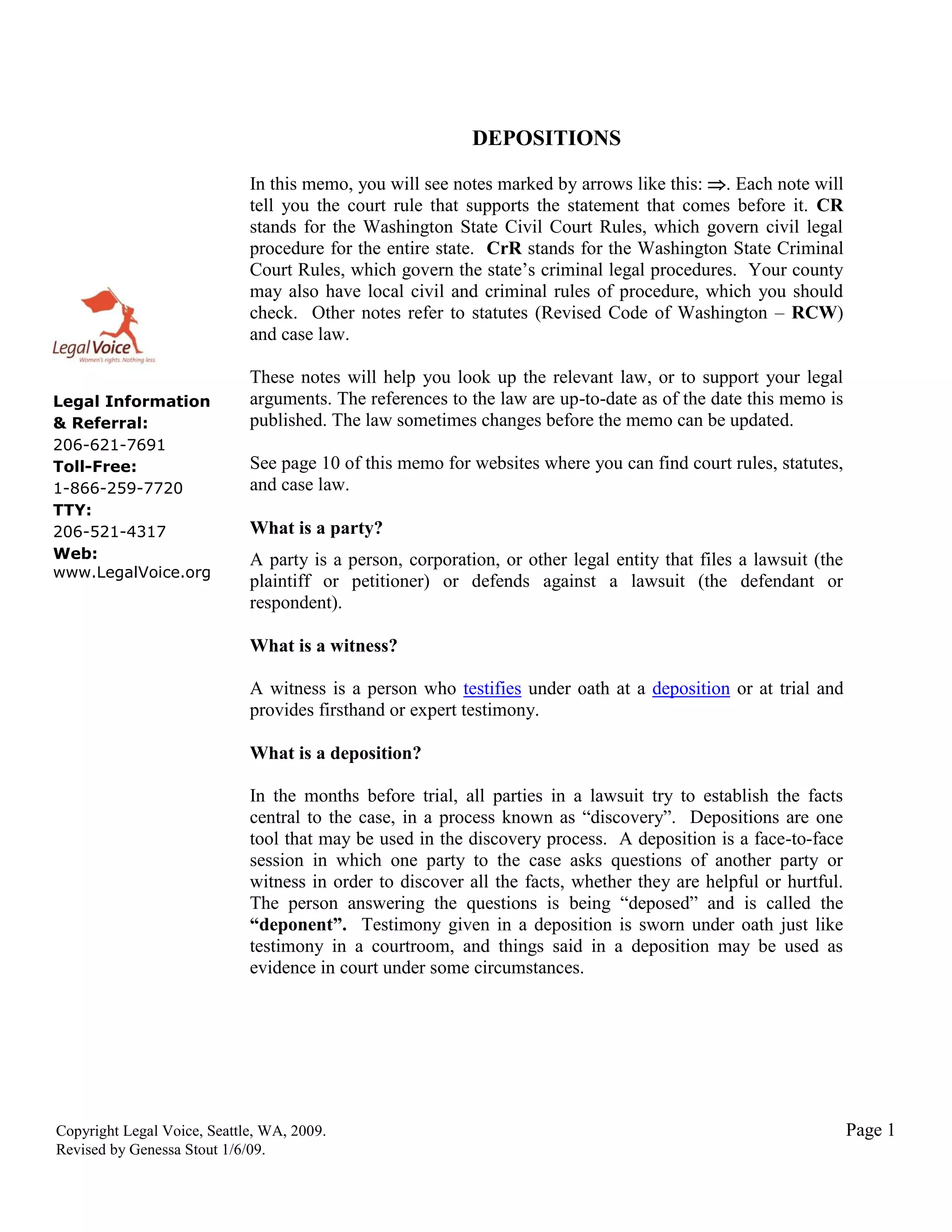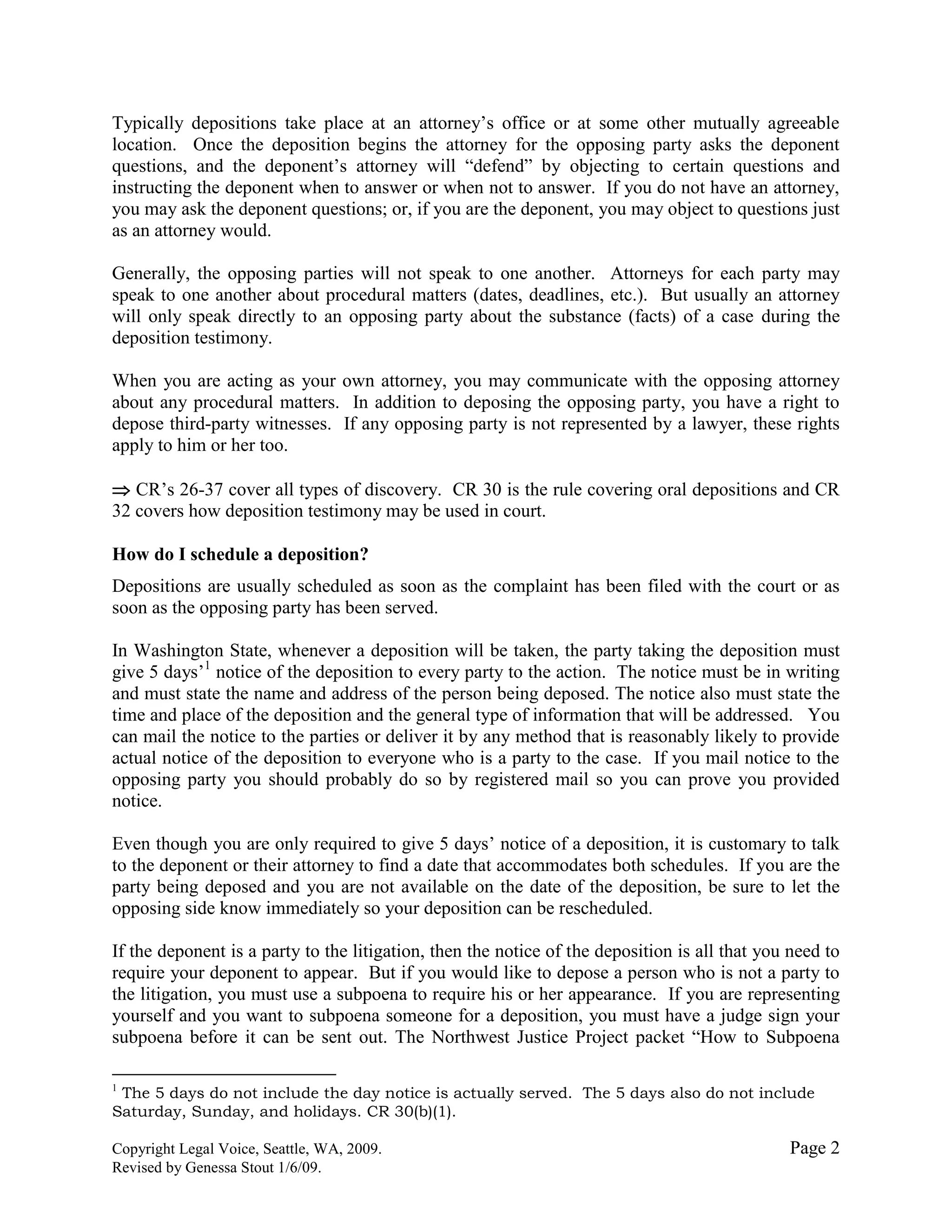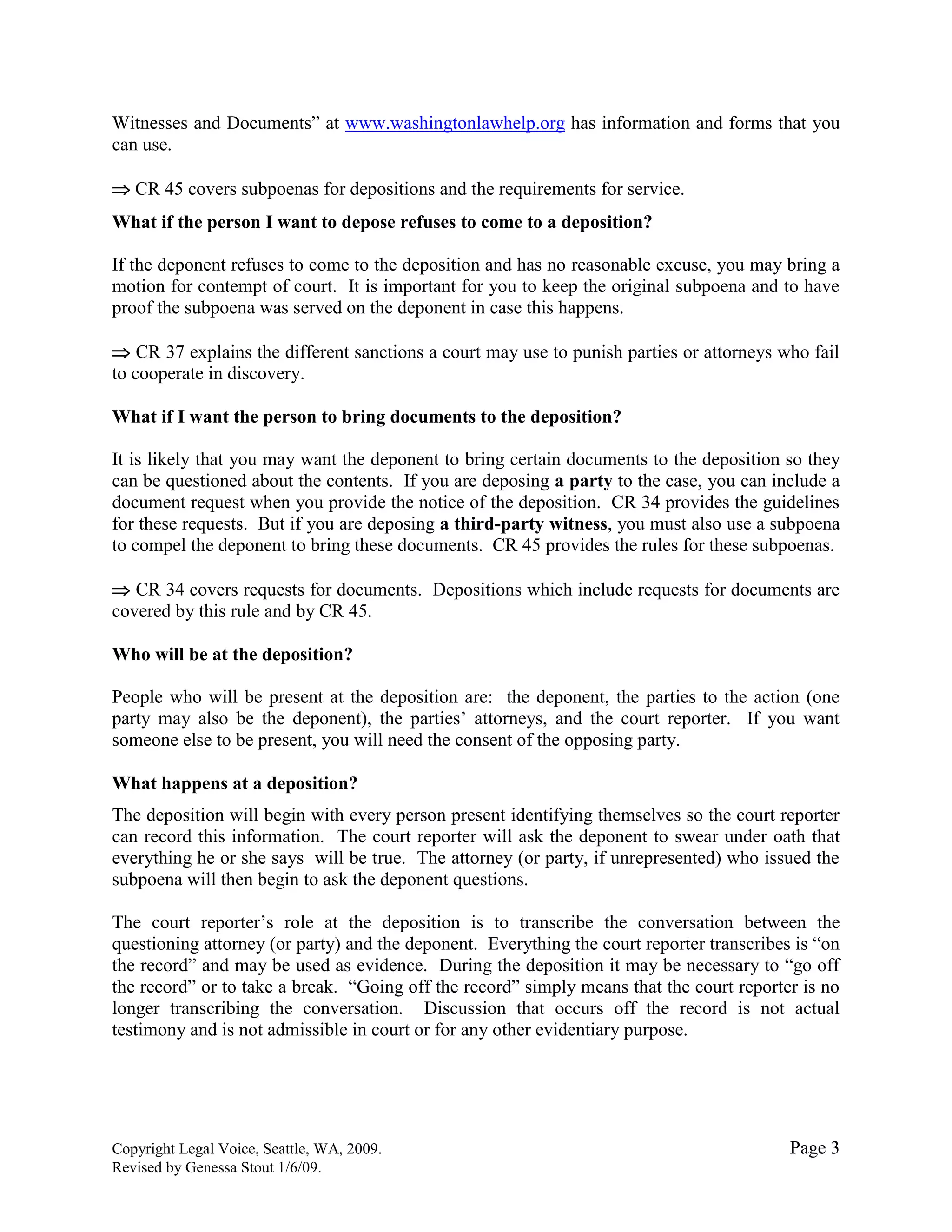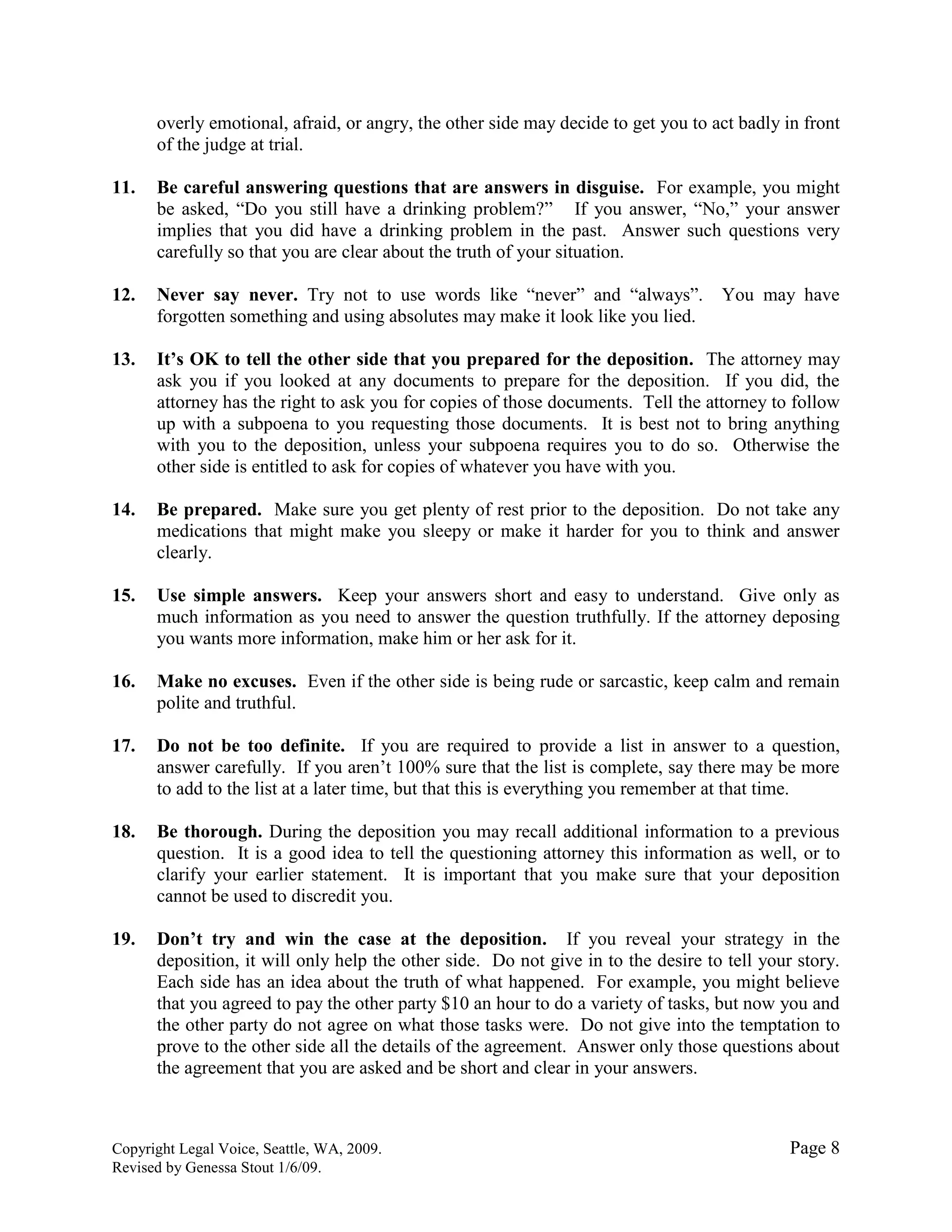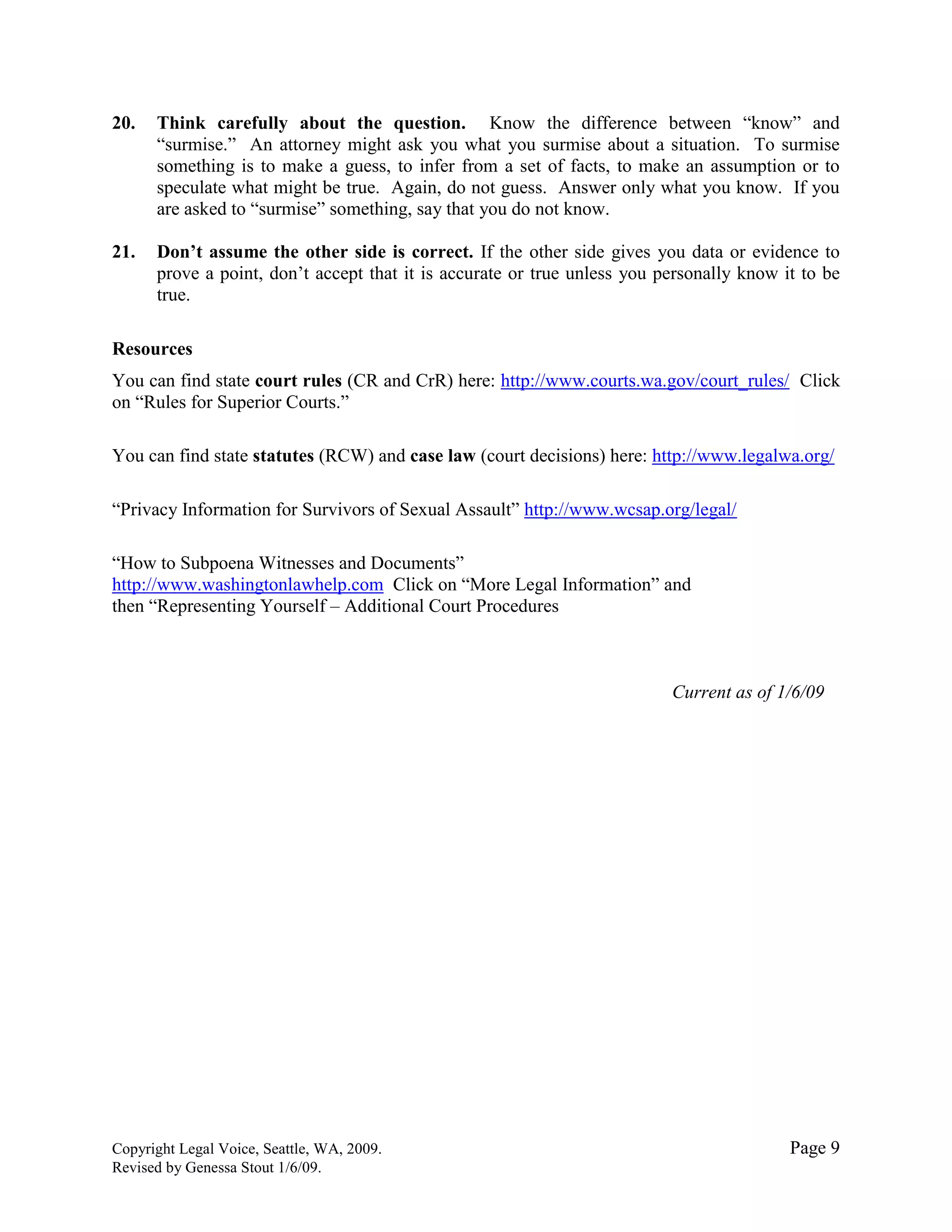This document provides information about depositions, which are part of the discovery process in civil lawsuits. It defines key terms like parties, witnesses, and depositions. It explains how to schedule a deposition, who can be present, the process that occurs, and the rights and responsibilities of those being deposed. The document also notes some differences for depositions in criminal cases and provides tips for answering questions during a deposition.
